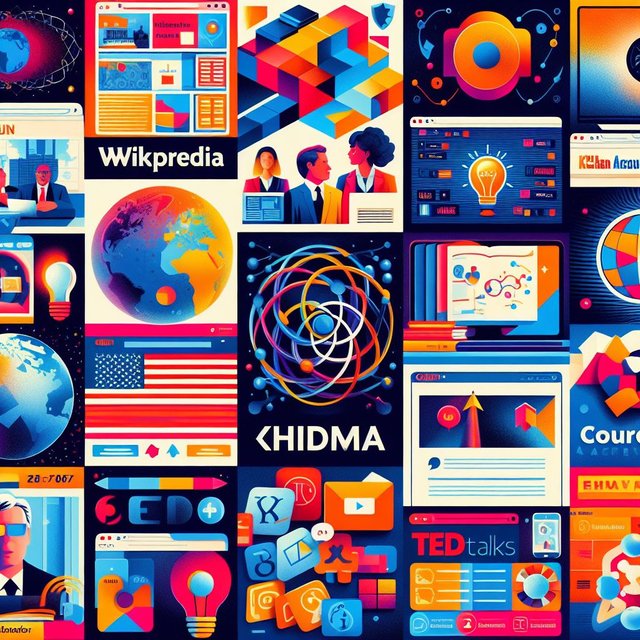In today's rapidly evolving world, access to knowledge and information is more valuable than ever. The internet has emerged as a powerful tool for learning and knowledge acquisition, transcending geographical boundaries and socioeconomic barriers. It provides a vast and ever-expanding library of resources, interactive learning platforms, and collaborative communities that cater to all ages and learning styles.
Benefits of the Internet for Learning:
Accessibility: The internet offers 24/7 access to an unparalleled amount of information on virtually any topic imaginable. Textbooks, research papers, articles, videos, and interactive simulations are just a click away, removing the limitations of traditional libraries and physical resources.
Affordability: Compared to traditional education, accessing information and learning online is often significantly more affordable. Open educational resources (OERs), online courses, and free learning platforms provide valuable knowledge without the hefty price tag of textbooks or tuition fees.
Flexibility: Online learning platforms offer flexibility in learning time and pace. Learners can access courses and materials at their convenience, fitting learning sessions into their busy schedules and learning at their own individual pace.
Variety: The internet provides a diverse range of learning formats and styles to cater to different learning preferences. From interactive video lectures and gamified learning experiences to collaborative forums and discussion boards, there is something for everyone.
Personalization: Online platforms can personalize learning paths based on individual needs and interests. Adaptive learning algorithms recommend resources and adjust difficulty levels, creating a customized learning experience that optimizes knowledge acquisition.
Community: Online learning communities foster interaction and collaboration. Learners can connect with peers, mentors, and experts, engaging in discussions, sharing experiences, and receiving valuable feedback.
Examples of Online Learning Resources:
Open Educational Resources (OERs): Platforms like OpenStax and Khan Academy offer free, high-quality textbooks, course materials, and learning modules across various academic disciplines.
Massive Open Online Courses (MOOCs): Major universities and institutions offer free online courses on diverse topics, including computer science, business, and humanities, through platforms like Coursera, edX, and Udacity.
Learning Management Systems (LMSs): Educational institutions and organizations utilize platforms like Moodle and Blackboard to deliver online courses, manage learning materials, and facilitate communication and collaboration among students and instructors.
Educational Videos: YouTube and other video platforms offer a wealth of educational content, ranging from bite-sized explainer videos to in-depth lectures and tutorials.
Educational Podcasts: Podcasts provide a convenient way to consume educational content on the go, covering various topics from history and science to current events and self-improvement.
Challenges and Considerations:
While the internet offers vast potential for learning and knowledge acquisition, it's important to acknowledge some challenges:
Information overload: The abundance of information online can be overwhelming and lead to information overload, making it difficult to discern credible sources and filter relevant content.
Digital literacy: Effective online learning requires digital literacy skills, such as critical thinking, information evaluation, and online research strategies.
Motivation and self-discipline: The self-directed nature of online learning can be challenging for some individuals, requiring strong motivation, self-discipline, and time-management skills.
Equity and accessibility: Not everyone has equal access to reliable internet connectivity and devices, potentially exacerbating existing educational inequalities.
Conclusion:
The internet has revolutionized the way we learn and access knowledge. Its diverse learning resources, interactive platforms, and collaborative communities empower individuals to acquire new skills, expand their knowledge base, and pursue their educational goals. However, it's crucial to be mindful of the potential challenges and adopt effective strategies to navigate information overload, develop strong digital literacy skills, and ensure equitable access to this valuable educational tool. As the internet continues to evolve, its role in driving learning and knowledge acquisition is bound to become even more prominent, shaping the future of education for generations to come.
